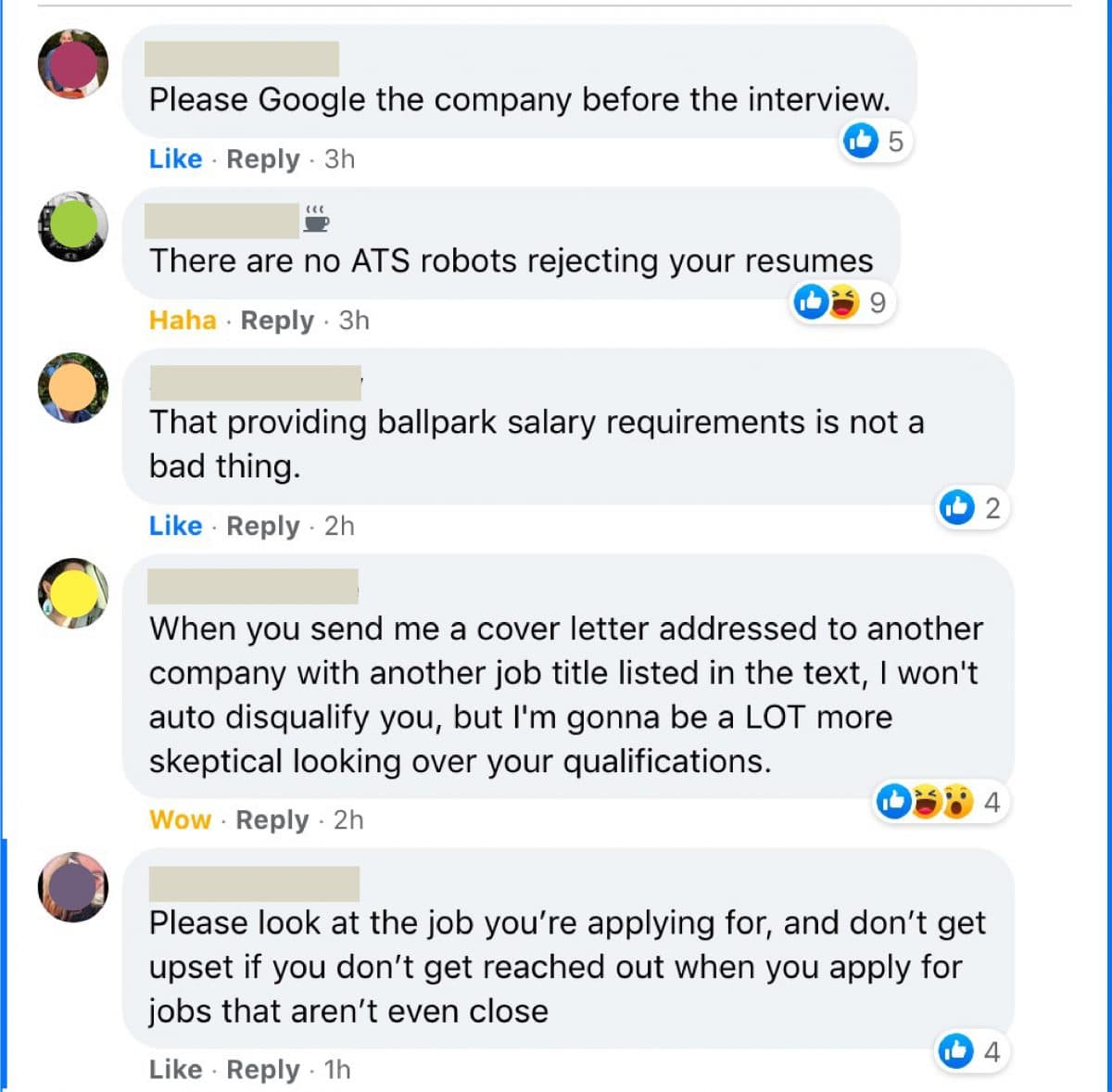Have you ever watched one of those TV shows about angels on Earth?
They’re here to help people, but their powers only go so far.
For example, they can influence someone by planting a thought into their minds — but they can’t actually prevent them from doing something. They also can’t speak to them directly.
That’s kind of how recruiters are, too. As much as they want to help, there’s only so much they can do. And though they might have privileged information about the hiring process, there are things that they can’t, or won’t, disclose.
Recruiters can only say so much
Sometimes, the reason they can’t tell you more is that they just don’t have the time. A quick online search will show you that many recruiters are overworked and burned out.


Many report having to meet unrealistic demands, juggling multiple responsibilities, and working longer hours than the average office employee. With so much to do, and under so much pressure, it’s no wonder they don’t have time to share tips or feedback.
There are also things they can’t tell you because it’s information that benefits you, but not the employer. Salary is an example. The initial one offered is usually lower than what the company is actually willing to pay.
A recruiter usually knows how much farther a company is willing to go for the right candidate, but they can’t disclose that information. It would conflict with the interests of the employer who is paying their salary.
Helping recruiters help you
Given the limits to what recruiters can do to help you, you need to come to the hiring process extra prepared. We’ve done half the work for you by compiling this list of things recruiters want you to know, but can’t tell you:

1. Clean up your social media
According to Glassdoor, nearly 80% of recruiters and hiring managers stalk your social media. They’re not doing it to be intrusive, they’re doing it to look for red flags.
If your Facebook account has photos of you making questionable decisions, it may affect your chances of getting hired. Similarly, if you use your Twitter account to complain about your current job, boss, or teammates — or worse, to post content that’s considered insensitive or inflammatory — there’s not much a recruiter can do to save you, even if you have amazing qualifications and do well in interviews.

Knowing that recruiters and hiring managers will check you out on social media, you might want to audit your accounts and delete posts that were funny years ago but aren’t flattering today. Make your social media accounts employer-proof so that you can remain hireable.
2. Be authentic and kind
While they can’t come outright and tell you this, recruiters want you to be likable. If you act like a robot or a jerk, they won’t be able to connect with you — and they need to if they’re going to sell you to a hiring authority.
Also, they’re usually looking to hire someone who is both competent and likeable, as opposed to a “competent jerk.”

So do your part and behave thoughtfully and politely throughout the hiring process. That means being responsive and well-mannered in emails, being nice to secretaries and virtual assistants, and being human in interviews.
3. Use the STAR method in interviews
This is one thing Smile’s very own recruiter, Marcie Arvelo, wishes job candidates would learn and practice. Sometimes, she explains, good candidates do a poor job of answering behavioral questions. They freeze, ramble, and sell themselves short.
Mastering the STAR framework is the best way to prepare for “Tell us about a time when…”-type questions. It equips you to talk about your professional experiences in a clear and compelling way.

STAR stands for:
Situation: Set the scene and give the necessary details of your example.
Task: Describe what your responsibility was in that situation.
Action: Explain exactly what steps you took to address it.
Result: Share what outcomes your actions achieved.
To learn more, check out The STAR Method: The Secret to Acing Your Next Job Interview.
4. You can—and should—negotiate
In Eat, Pray, and Love, author Elizabeth Gilbert tells a story of a man who repeatedly begs a saint to help him win the lottery. After several months, the exasperated saint comes to life and begs the man to please, please, buy a lottery ticket.
Recruiters sometimes feel just like the saint in the story. They know they can help make job candidates’ lives better — but their hands are tied if the candidate doesn’t say something.

When it comes to salary negotiations, you have to take the lead. If you don’t, there’s nothing the recruiter can do except witness you being taken advantage of.
Help recruiters help you by knowing your worth and going into the hiring process prepared to negotiate — not just pay, but anything that matters to you, including vacation time and your work schedule.
Other things recruiters want you to know
We asked recruiters in the Facebook group Recruiters Online what they wished job candidates knew. Here is some of the feedback:
- “Please Google the company before the interview.”
- “There are no ATS robots rejecting your resumes.” Ouch.
- “Providing ballpark salary requirements is not a bad thing.”
- “When you send me a cover letter addressed to another company with another job title listed in the text, I won’t auto disqualify you, but I’m gonna be a LOT more skeptical looking over your qualifications.”
- “Please look at the job you’re applying for and don’t get upset if you don’t get reached out when you apply for jobs that aren’t even close.”

The message is clear: Recruiters can’t help you if you can’t help yourself.
How to meet recruiters’ expectations
Job seekers, here’s what to keep in mind during the hiring process:
- Recruiters and hiring managers will check your social media. Make sure the content you put out reflects who you say you are.
- Likeability matters. Be thoughtful and polite from application to offer.
- There is a framework for answering questions well. Learn the STAR method and use it in interviews.
- Salaries are negotiable. Don’t be scared to ask for more.
What’s something you wished candidates knew? Check out more articles on sourcing and recruiting.

